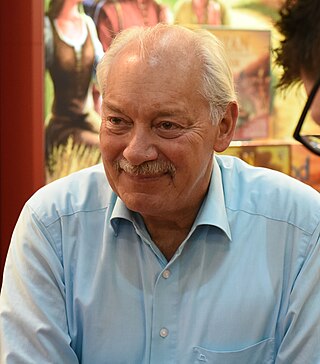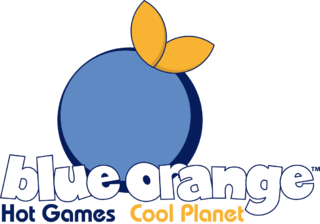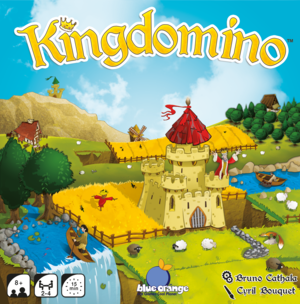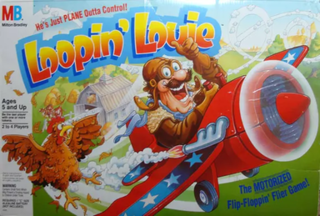
The Spiel des Jahres is an award for board and card games, created in 1978 with the purpose of rewarding family-friendly game design, and promoting excellent games in the German market. It is thought that the existence and popularity of the award was one of the major drivers of the quality of games coming out of Germany, particularly in the 1980s and 1990s. A Spiel des Jahres nomination can increase the typical sales of a game from 500–3,000 copies to around 10,000, and the winner can usually expect to sell as many as 500,000 copies.

Klaus Wilhelm Heinrich Teuber was a German board game designer best known as the creator of Catan. Originally working as a dental technician, he began designing games first as a hobby then as a full-time career.

Reiner Knizia is a prolific German-style board game designer. He was born in West Germany in 1957 and earned a doctorate in Mathematics from the University of Ulm before designing games full time. He is frequently included on lists of the greatest game designers of all time. Many of his hundreds of designs are considered modern classics, and many have won or been nominated for significant gaming awards, including the Spiel des Jahres and the Deutscher Spiele Preis. His notable designs include Amun-Re, Blue Moon City, Ingenious, Keltis, Lord of the Rings, Medici, Modern Art, Ra, Taj Mahal, Tigris and Euphrates, and Through the Desert. Many of his designs incorporate mathematical principles, such as his repeated use of auction mechanics.

Wolfgang Kramer is a German board game designer.

References to the fictional kraken are found in film, literature, television, and other popular culture forms.

The Zoch Verlag is a Munich-based publisher of games. Its pivotal point is games of skill made out of wood - or with a high proportion of wood — for children and families. In addition, it has games in which the tactical skills of the players are demanded.
Rüdiger Dorn is a German-style board game designer who is married and has three children. He lives in Pfofeld near Nuremberg.

Michael Kiesling is a German board game designer. Many of his games have been nominated for or have won the Spiel des Jahres, a German games award.
Manhattan is a board game designed by Andreas Seyfarth. In the game, players aim to construct and control skyscrapers that will award points. Manhattan received generally positive reviews and won the 1994 Spiel des Jahres award.

The kraken is a legendary sea monster of enormous size, per its etymology something akin to a cephalopod, said to appear in the sea between Norway and Iceland. It is believed that the legend of the Kraken may have originated from sightings of giant squid, which may grow to 12–15 m in length.
Marrakech is a board game designed by Dominique Ehrhard in which players are competing carpet traders in the city of Marrakech. It was first published in 2007. Its German edition has been renamed Suleika.

Mississippi Queen is a German board game published by Goldsieber Spiele in 1997 that simulates a paddlewheel race down the Mississippi River in 1871. The game was also published in English by Rio Grande Games, and won several awards including the Spiel des Jahres.

Cephalopods, usually specifically octopuses, squids, nautiluses and cuttlefishes, are most commonly represented in popular culture in the Western world as creatures that spray ink and use their tentacles to persistently grasp at and hold onto objects or living creatures.

Blue Orange is a French board game company based in Pont-à-Mousson, France. The company is often called Blue Orange international or Blue Orange Europe and mistaken for Blue Orange Games.

Kingdomino is a 2016 tile board game for 2-4 players designed by Bruno Cathala and published by Blue Orange Games. In this 15-20 minute, family-oriented game, players build a five by five kingdom of oversized domino-like tiles, making sure as they place each tile that one of its sides connects to a matching terrain type already in play. The game was critically successful and won the 2017 Spiel des Jahres award, and was followed by several spin-offs and expansions.
Heinz Meister is a prolific board game designer from Germany. He is credited as the designer of over 150 board games or game items. Only a few game designers from Germany such as Reiner Knizia, Wolfgang Kramer, and Michael Schacht are known to have more tabletop game design credits. Meister won the Kinderspiel des Jahres award for best children's game in 1995 with Karambolage and in 1992 for Galloping Pigs.

Loopin' Louie, is an interactive electronic board game designed by Carol Wiseley and published by Milton Bradley in 1992. It was given the Kinderspiel des Jahres award in 1994. Although the game is designed for a maximum of 4 players, unofficial modifications were made by modders to increase the maximum number of players to eight. A Star Wars variation called "Loopin' Chewie" was produced by Hasbro in 2015.
Dragomino is a children's tile-laying board game designed by Bruno Cathala, Marie Fort, and Wilfried Fort and published by Blue Orange Games. It is based on Kingdomino.
Quacks & Co.: Quedlinburg Dash, also known as Quacks & Co., is a German children's racing game designed by Wolfgang Warsch and first published by Schmidt Spiele in 2022. It is a spin-off of the game The Quacks of Quedlinburg. Players take turns drawing coloured chips from a bag in order to move their animal along a racetrack and be the first to make it to Quedlinburg.












